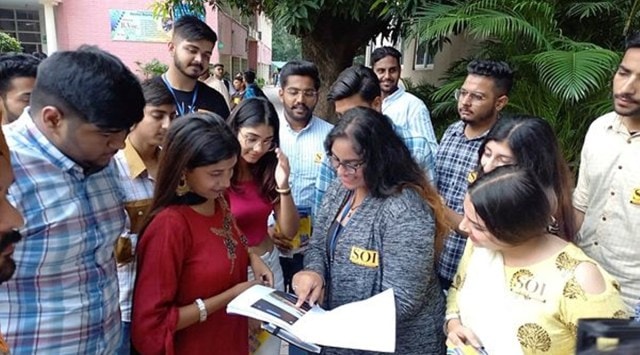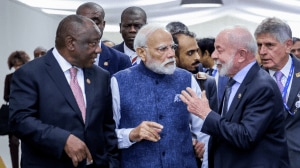Anonna Dutt is a Principal Correspondent who writes primarily on health at the Indian Express. She reports on myriad topics ranging from the growing burden of non-communicable diseases such as diabetes and hypertension to the problems with pervasive infectious conditions. She reported on the government’s management of the Covid-19 pandemic and closely followed the vaccination programme. Her stories have resulted in the city government investing in high-end tests for the poor and acknowledging errors in their official reports. Dutt also takes a keen interest in the country’s space programme and has written on key missions like Chandrayaan 2 and 3, Aditya L1, and Gaganyaan. She was among the first batch of eleven media fellows with RBM Partnership to End Malaria. She was also selected to participate in the short-term programme on early childhood reporting at Columbia University’s Dart Centre. Dutt has a Bachelor’s Degree from the Symbiosis Institute of Media and Communication, Pune and a PG Diploma from the Asian College of Journalism, Chennai. She started her reporting career with the Hindustan Times. When not at work, she tries to appease the Duolingo owl with her French skills and sometimes takes to the dance floor. ... Read More
National Medical Commission sets up anti-ragging panel, seeks details of suicides by students
The committee, chaired by the president of the Under-Graduate Medical Education Board, Dr Aruna Vanikar, reviewed ragging complaints from students and parents during its first meeting held late last month.
 Although many have said that this was a step in the right direction to ensure good mental health of medical students, it was not adequate. (File Photo)
Although many have said that this was a step in the right direction to ensure good mental health of medical students, it was not adequate. (File Photo)India’s medical education regulator, the National Medical Commission, has constituted an anti-ragging committee that has asked medical colleges for details on suicides by students over the last five years.
The committee, chaired by the president of the Under-Graduate Medical Education Board, Dr Aruna Vanikar, reviewed ragging complaints from students and parents during its first meeting held late last month.
The committee has since set up an email id — antiragging@nmc.org — for reporting such incidents, providing students another redressal mechanism outside college.
“All colleges are requested to give wide publicity by publishing the same on website and displaying on the prominent places like hostel, mess, classroom, library, lecture hall, common room etc. A compliance report in this regard may kindly be sent,” said the notice from NMC.
Other than the complaints mechanism, the committee has asked medical colleges to send in details about the number of students who died by suicide during the last five years (department-wise in respect of PG students), the number of students who have left the college or institute during the last five years, and details of the working hours and weekly offs given to students. The committee has asked all colleges to send in the details by October 7, while adding that “all incidents of suicide and suicidal tendency are not linked to ragging.”
Although many have said that this was a step in the right direction to ensure good mental health of medical students, it was not adequate.
Dr Aviral Mathur, president of the Federation of Resident Doctors’ Association and a resident doctor at Maulana Azad Medical College, said: “The anti-ragging sentiment has been gaining momentum since early 2000s and there is hardly any ragging in most medical colleges; we do see a few cases here and there. Although it is a good step — and this kind of blanket approach is needed to prevent such incidents anywhere — if the NMC is trying to curtail issues that lead to a mental health crisis, this is not a major one.”
He said: “One, academic shock that UG students face after class 12 when they have to study so much. Sometimes they cannot cope up and start spiralling. This is when they need a good support system in place; although I am not condoning ragging, banter between seniors and juniors can actually create this support. When I was doing my MBBS, we had a concept of a rank-father, where seniors with the same rank as juniors would mentor and guide them.”
He added that for those studying in private colleges there is also a financial burden. “The fee for medical education has gone up nearly five times in a decade. When I was selecting colleges for my MBBS, the highest fee was Rs 20 lakh for the entire duration of the course. Now, the fee at the same college is Rs 20 lakh per year.”
Dr Rohan Krishnan, president of Federation of All India Medical Association, also agreed that it is academic pressure more than ragging that needs to be addressed to prevent suicides and suicidal ideation. “Although the number of medical seats has gone up in the last few years, the competition hasn’t reduced. And, despite the country needing more doctors, there is a shortage of vacancies. This is because no one wants to go to rural areas because the infrastructure is missing and the pay is less,” he said.
He added: “I am more worried about the bullying that students face from senior faculty members where they threaten the students that they will fail if they do not do what they are told.”








- 01
- 02
- 03
- 04
- 05
























